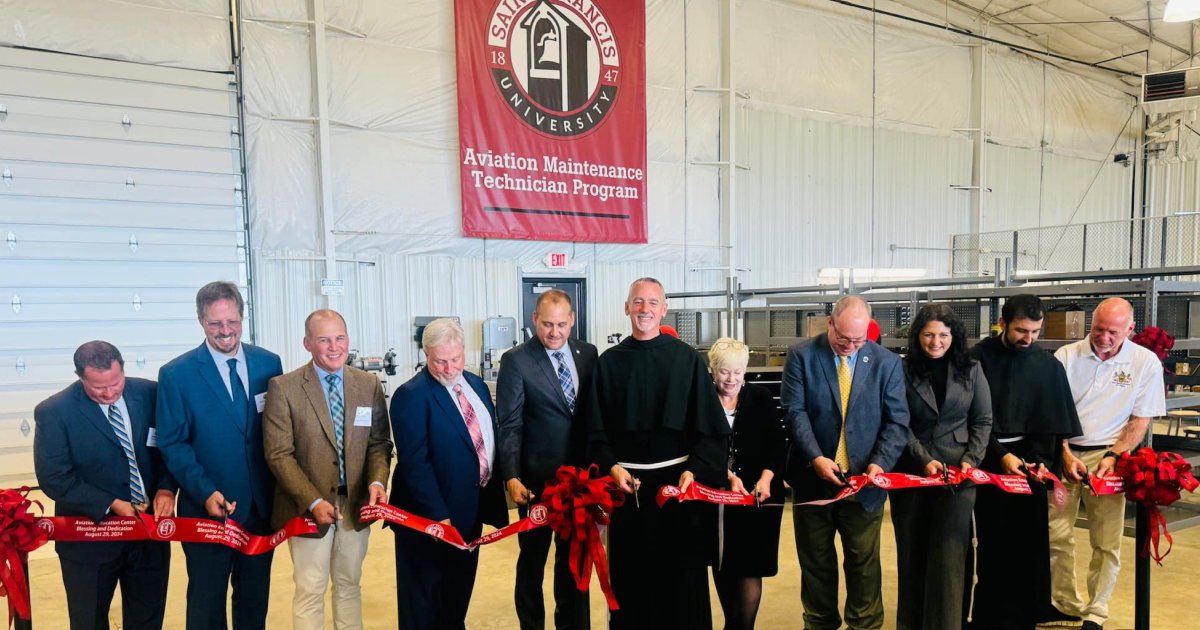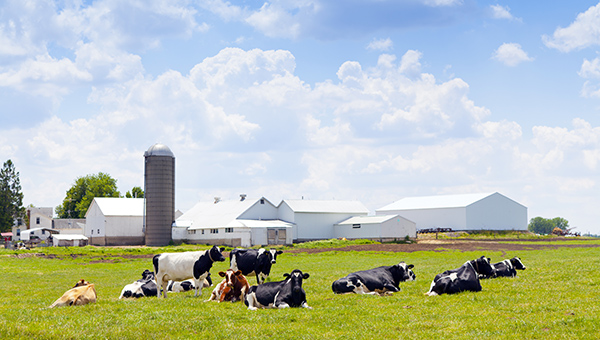
|
||||
|
In this Update:
Ribbon Cutting for Aviation ProgramLast week, I attended a ribbon cutting ceremony at the John Murtha Cambria County Airport to celebrate the launch of the Aviation Maintenance Technician Program at Saint Francis University. Langerholc to Hold License Plate Replacement EventsNext month, I will be holding multiple license plate replacement events across the 35th District. If your license plate is damaged and needs to be replaced, stop by one of my upcoming events to receive help from my office in replacing your plate for free! A police officer will be present at each event to sign off on the replacement applications. If you have any questions or cannot attend one of these events and need your plate replaced, feel free to contact my office at 814-266-2277. Langerholc Appointed to State Board of Higher Education, Performance-Based Funding CouncilThis week, I was appointed to key panels tasked with improving postsecondary education in the Commonwealth. I was appointed by Senate President Pro Tempore Kim Ward (R-39) to the State Board of Higher Education and the Performance-Based Funding Council. The 21-member State Board of Higher Education will play a crucial role in developing, planning, and advancing the higher education landscape in the Commonwealth. This board is tasked with establishing policies that ensure all Pennsylvanians have access to high-quality, affordable, and accountable postsecondary education opportunities, preparing students for success in a rapidly evolving job market. The Performance-Based Funding Council is set to modernize how three state-related institutions—Penn State, Pitt, and Temple—receive funding. By developing a new process based on performance metrics, the council aims to boost degree attainment, promote affordability, and align educational outcomes with the workforce needs of the 21st-century economy. This innovative approach will help drive economic growth and ensure that higher education institutions are meeting the needs of students and employers alike. These appointments will put me in a position to tackle one of the biggest tasks facing Pennsylvania: retaining our young talent by making higher education more accessible and affordable while linking academic programs to high-demand, family-sustaining jobs. I’m eager to serve on these boards and help Pennsylvania students set a course for living, working, and raising a family here in the Commonwealth. A Closer Look at Increasing Job Growth in PA
Pennsylvania’s notoriously long waits for permit reviews in the past have unfortunately led to employers and entrepreneurs taking their jobs to other states. As part of the current state budget, Senate Republicans worked to keep and attract more jobs by including an initiative to speed up permit reviews, make the process more transparent and eliminate this barrier to Pennsylvania job creation. We need to stop delays that impede job growth. We also need to be on a level playing field, working to surpass other states to promote job growth, but we haven’t been when it comes to the startup penalty new businesses face in the commonwealth. All but one other state allow new businesses to get on their feet by limiting the tax liability they face. Pennsylvania is finally beginning to phase out this penalty with language in the state budget. The new Max Manufacturing Initiative Act will support job growth by providing grants and loans to state universities to partner with engineering entities. Along with creating family-sustaining jobs, it will enhance research capabilities, promote business alliances and produce high-value products. Keeping Pennsylvania on a path to prosperity by promoting initiatives and policies to foster greater job growth remains a key area of focus as we continue our legislative work this fall. Convenience with PA’s Expanded Liquor Law
In response to a call for increased convenience, people will soon enjoy a greater selection of canned cocktails available at more Pennsylvania businesses. Because of a new law, restaurants, hotels, convenience stores and grocery stores may now apply for a permit to sell drinks containing spirits like vodka, gin and tequila. Those drinks could previously only be purchased at state-run Fine Wine and Good Spirits stores. As soon as Monday, Sept. 16, businesses with approved permits may begin selling spirit-based cocktails with an alcohol volume ranging from 0.5% to 12.5% in containers up to 16 ounces, to individuals aged 21 or older with valid identification. They may not sell more than 192 ounces of ready-to-drink cocktails per sale. Making Payments in Lieu of Taxes Fairer
Providing schools, local municipalities and counties with greater funding through state agency payments in lieu of taxes was a key priority of Senate Republicans as we worked to implement the 2023-24 and 2024-25 state budgets. Payments in lieu of taxes benefit everyone in Pennsylvania, especially those who live in rural communities where increased state ownership of land depresses local property tax revenues. The increase to the statutory payments for each acre of land owned by the Pennsylvania Game Commission, the Pennsylvania Fish and Boat Commission, and the Department of Conservation and Natural Resources will result in more than $35 million annually for schools, local municipalities and counties. In addition, these statutory payments will automatically adjust with inflation every five years. Tools Available to Help Farmers Fight Avian Flu
As agriculture is Pennsylvania’s top industry, farms play a critical role not only in putting healthy foods and drinks on our tables, but also in maintaining the health of our economy. Anything that could affect farms has the potential to hurt us all. Highly pathogenic avian influenza is primarily transmitted by birds to animals and will spread on farms by people carrying dust, dander and droppings from infected birds on their clothing, gloves, shoes, vehicle tires and animal trailers. To minimize the spread and control the rapidly changing health situation, biosecurity kits are available with resources to enhance biosecurity on all farms. Each kit includes National FARM’s Everyday Biosecurity Plan, signage, training posters and a visitor sign-in sheet. Request a kit online or in bulk by calling 717-346-0849. |
||||
|
||||




Want to change how you receive these emails? 2025 © Senate of Pennsylvania | https://www.senatorlangerholc.com | Privacy Policy |







